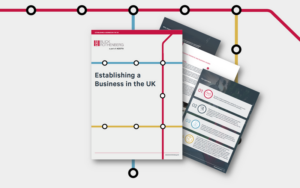Contractors and subcontractors in the UK construction sector must understand the Construction Industry Scheme and follow its rules to avoid costly losses
It is important that contractors comply with their CIS responsibilities to avoid penalties from HMRC
11 April 2025 | Author: Viktor Gottschlich
Contractors and subcontractors in the UK building sector must understand the Construction Industry Scheme (CIS) and follow its rules to avoid costly losses.
Viktor Gottschlich, Senior Manager said:
CIS is an anti-fraud measure for construction work which ensures compliance with both Pay As You Earn (PAYE) and Value-Added Tax (VAT) and it covers most construction work. Both contractors and subcontractors need to know about CIS to avoid costly losses.
If the contractor doesn’t report under CIS correctly or misses to make deductions from payments to subcontractors, this can result in penalties or a loss. If the subcontractor doesn’t register, they suffer a 30% deduction when they are paid, but they can get the deduction back when they register for CIS.
Viktor said:
I have seen cases where CIS deductions have not been made by contractors for payments to their subcontractors over long periods. In one case, HMRC claimed the full amount from the contractor, but the contractor was unable to claim back these missed deductions from its subcontractor which resulted in a significant loss for the contractor.
A contractor, such as a construction company or property developer in charge of a project that uses other building companies to carry out some of their work needs to report under the CIS. Other companies can be deemed a contractor when their construction turnover exceeds £3,000,000 in a 12-month period, e.g. investment property companies, landlords, housing associations and public bodies. A subcontractor is a company selling construction services to a contractor.
Contractors have various responsibilities under the CIS. They have to check if the work of their subcontractors falls within the CIS and whether they have to make any deductions from a subcontractor’s payment. They must also file monthly CIS returns with HMRC by the 19th of each month and pay any deductions made to HMRC by the 22nd of each month.
If a subcontractor operates a bank account, meets its VAT and PAYE obligations and its construction turnover exceeds £30,000 per director or £100,000 if there are more than 3 directors, it will be granted ‘gross’ status when it registers for CIS and face no CIS deductions by its contractors. If a subcontractor registers for CIS and does not meet these criteria, a 20% deduction rate will apply, whereas a higher deduction rate of 30% applies should the subcontractor fail to register for CIS.
It is important that contractors comply with their CIS responsibilities to avoid penalties from HMRC. If a contractor fails to make necessary deductions and does not pay them to HMRC, HMRC may request these payments from the contractor at a later time. If the subcontractor cannot or is unwilling to pay back the amounts to the contractor that should have been deducted, the contractor could suffer a substantial loss.
How we can help
If you would like to discuss the above please speak to your usual Blick Rothenberg contact or use the form below.
Contact Us
You may also be interested in

Vodcast – Steve Rigby

Additional UK Guidance for Transfer Pricing Compliance












